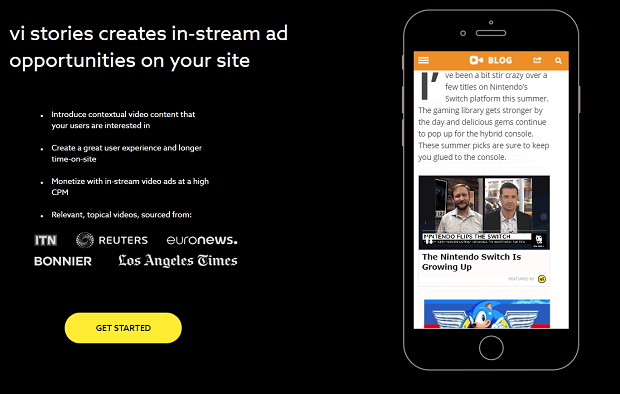video intelligence (vi) has launched vi stories – a contextual video platform that connects media companies with content providers, helping them to deliver engaging and topical video to users based on the content they are interested in.
vi stories allows publishers to embed a native video player on their platform that matches the look, style and design of their app or website.
A natural language machine learning algorithm, powered by IBM Watson, finds and serves editorial video based on its analysis of the page content. Content is sourced from a vast and continually updating video library, containing clips from outlets like ITN, Reuters and Euronews.
The product aims to create highly engaging experiences for users and increase the time they spend on the site, creating greater monetisation opportunities on publisher platforms. vi stories inserts contextual advertising within the player, allowing advertisers to target engaged viewers with audience-appropriate branded content in a native media environment.
Kai Henniges, CEO of video intelligence, comments: “Context is everything. For too long we’ve been distracted by inefficient methods of targeting customers online. It became annoying and users have had enough of it. By matching videos contextually we can be sure a user is interested in the content and the advertising.”
As of February 2018, vi stories is now available for publishers based in the U.K., following successful adoption of the platform by over 15,000 publishers across Europe, including the MailOnline in France and the Styria Media Group in Austria who are using the technology across its top outlets, such as Die Presse.
The launch comes as advertisers and publishers prepare for the implementation of General Data Protection Regulation (GDPR) in May 2018. As these companies consider how the new rules will impact their audience targeting strategies, contextual placement looks to emerge as a leading way to connect users with the right messages at the right time in the right place – in a way that is in accordance with the new legislation and not based on a viewer’s cookies.

